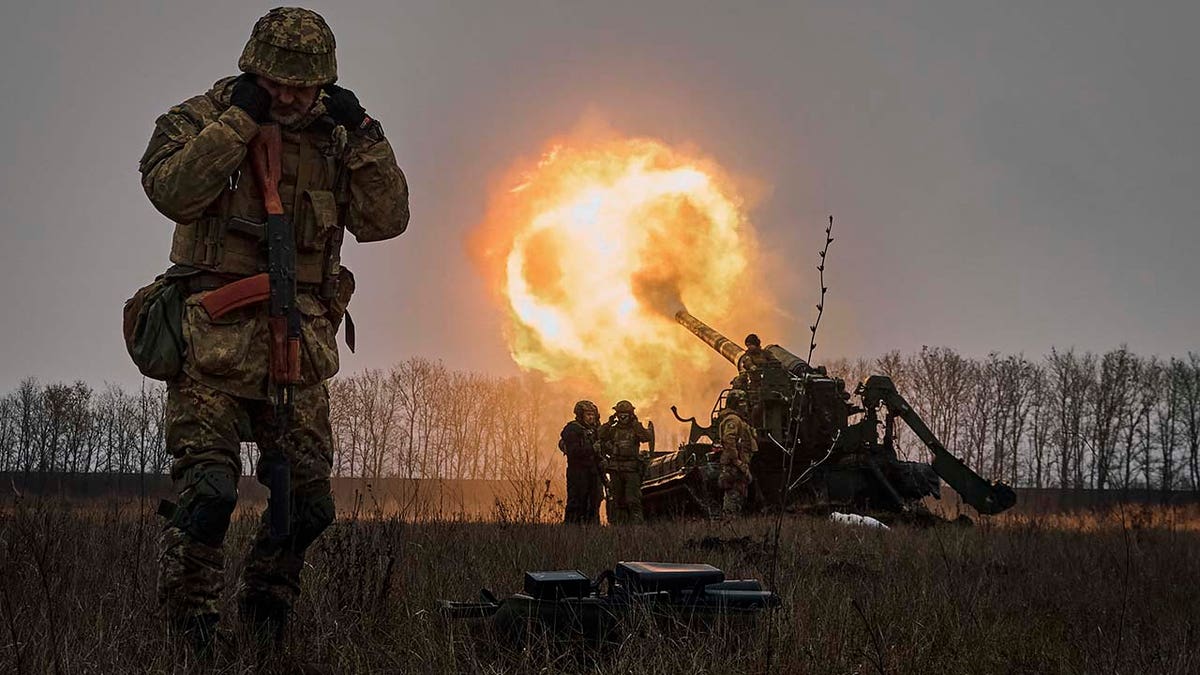Sending Ukraine cluster bombs will be 'front and center' in NATO summit: Kiron Skinner
Pepperdine University professor Kiron Skinner joins 'Fox Report' to discuss President Biden's strategy at the 'high stakes' NATO summit in Lithuania amid Russia's continued war in Ukraine.
A Russian airstrike on a Ukrainian school building killed four adult civilians as they were gathering to distribute humanitarian aid, Ukraine announced Monday.
Gov. Yuriy Malashko of the Zaporizhzhia region declared the attack "a war crime." He added that the people killed in the attack were three women and one man, all in their 40s.
Malashko credited the attack not to a missile but to a guided aerial bomb, an increasingly common attack method as Russia's supply of missiles dwindles.
While Russia denies it targets civilians outright, its missiles have struck dozens of residential buildings and other non-military targets a year and five months since the invasion began.
UKRAINE GAINED ADVANTAGE IN WAR AGAINST PUTIN WITH CUSTOM-BUILT AI: ‘UNPRECEDENTED TESTING GROUND’

Rescuers work at a site of a residential building hit by a Russian missile strike, amid Russia's attack on Ukraine, in Lviv, Ukraine.
Russian forces have launched wave after wave of missiles and suicide drones against the capital of Kyiv and other major cities. Ukrainian forces have become adept at shooting down such attacks, however, thanks largely to the supply of air defense systems from the U.S. and other Western countries.
As a result, Ukrainian investigators have increasingly found instances of Russia dropping older bombs, some around 1,100 pounds. The low-tech explosives easily circumvent modern air defenses like the U.S.-made Patriot missile systems that are designed to counter long-range missiles and drones.
US TO PROVIDE CLUSTER MUNITIONS TO UKRAINE, $800 MILLION MILITARY AID PACKAGE, OFFICIALS SAY
Russia's bombs, resurrected from Cold War-era ordnance stashes, have two major advantages over missiles in that they have no propulsion system for air defenses to track, and they remain airborne for barely a minute.

President Biden, left, has approved the delivery of cluster munitions to Ukraine, a controversial move opposed by allies like the U.K.
Monday's bombing comes as President Biden is set to defend his decision to deliver cluster munitions to Ukrainian forces during a NATO summit later this week. Biden argues the move is necessary due to the dwindling supply of traditional 155 millimeter ammunition.
WILL RUSSIAN WARLORD CHALLENGE PUTIN IN 2024 PRESIDENTIAL ELECTION?
U.K. Prime Minister Rishi Sunak, who met with Biden on Monday, objected to the move, however. Sunak stated that the U.K. had signed an arms agreement against the use of cluster munitions and would not participate in supplying them to Ukrainian forces, though it would continue sending other aid.

Ukrainian soldiers fire a Pion artillery system at Russian positions near Bakhmut. The U.S. will soon deliver cluster munitions to Ukrainian forces. (AP Photo/LIBKOS, File)
CLICK HERE TO GET THE FOX NEWS APP
Cluster munitions, fired from artillery, pose a greater threat of civilian casualties, and the small explosives are liable to embed themselves in the ground undetonated for years, creating a potential post-war threat.
The Associated Press contributed to this report.








































